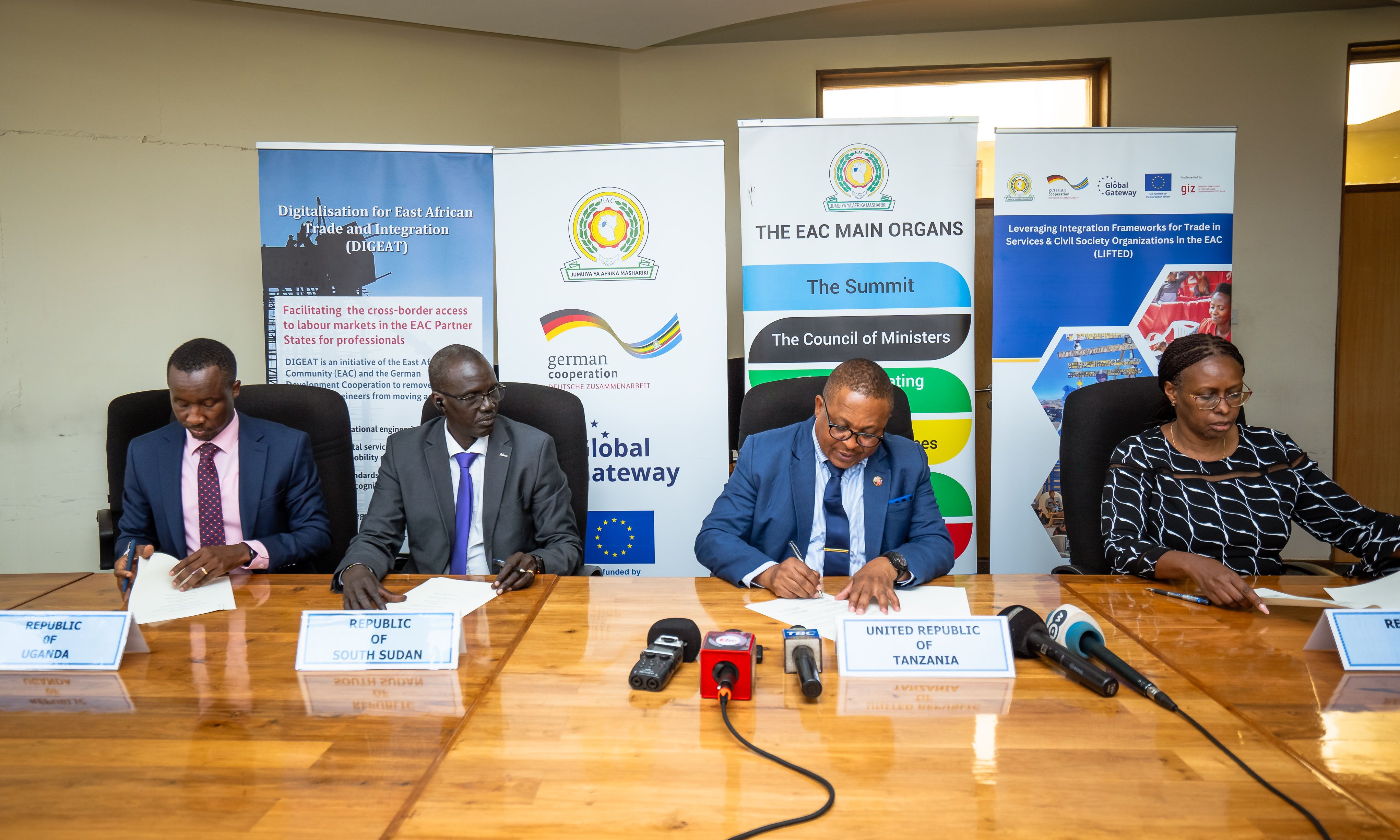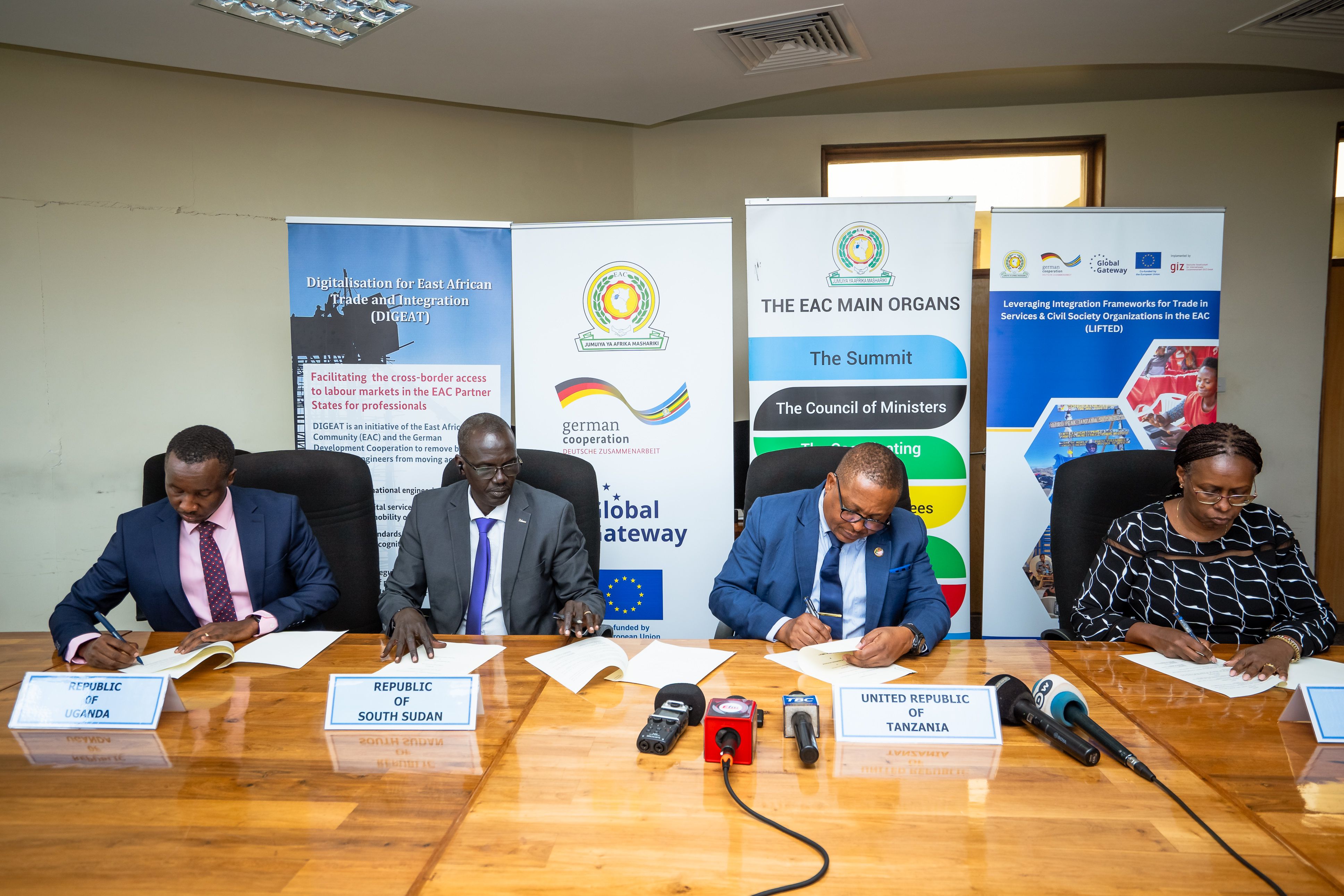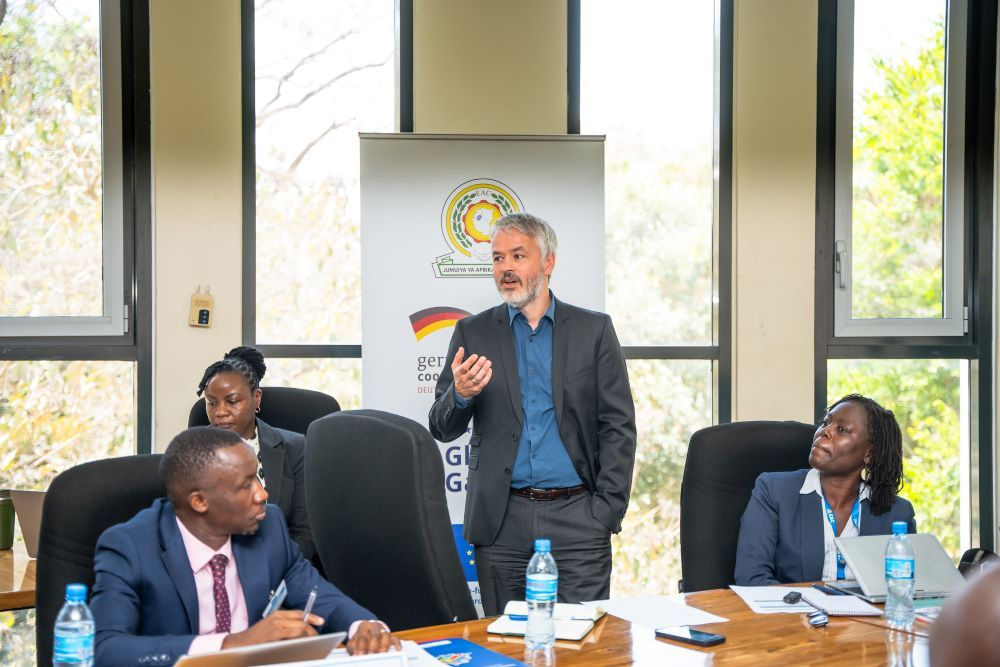On 4 November 2024, the Republic of South Sudan acceded to the Mutual Recognition Agreement (MRA) of engineers, marking a significant milestone towards the movement of professional engineers in the East African Community. The MRA aims to streamline recognition of professional qualifications of engineers in the region, thereby paving the way for their cross-border mobility.
The accession agreement was signed by the Registrar of the Engineering Council of South Sudan, the Engineers Board of Kenya, the Engineers Registration Board of Tanzania, the Engineers Registration Board of Uganda, and the Rwanda Engineering Council. The ceremony was witnessed by a representative of the Partner States, the EAC Secretariat and GIZ through DIGEAT & LIFTED initiatives supporting the EAC to facilitate the movement of professionals in the region in line with the Common Market Protocol.
The Treaty for the Establishment of the East African Community provides for the creation of a Common Market among the Partner States with free movement of labour, goods, services, capital, and the right of establishment. For this purpose, the Partner States are required to mutually recognize the academic and professional qualifications granted, experience obtained, requirements met, licenses, or certifications granted in other Partner States.
As an innovative step to breaking down barriers hindering the cross-border mobility of professionals in East Africa, the East African Community, the German Federal Ministry for Economic Cooperation and Development (BMZ), and the European Union (EU) jointly developed the project Digitalisation for East African Trade and Integration (DIGEAT) and LIFTED. The two projects focus on the existing Mutual Recognition Agreement for engineers and aim to improve cross-border mobility regulatory frameworks as well as establish a digital data exchange mechanism to facilitate the recognition of qualifications of practicing engineers in the region.
By enhancing the mobility of professionals, the MRAs are expected to facilitate transfer of knowledge and skills in the region and improve access to a wider pool of experts, thereby promoting quality and professionalism in the EAC region.
Speaking during the ceremony, Dr. Dorcas Omukhulu, EAC Principal Education Officer underscored the need for the Competent Authorities in the 5 Partner States to ensure quality assurance of engineering professionals in the region.
“I also in this vein call upon the Partner States’ whose competent Authorities have not acceded to the Engineers’ MRA to do so”. She added.
Representing the Engineering MRA Coordination Committee in East Africa, Eng. Benard Kavishe, Chairman and Registrar of Engineers Registration Board of Tanzania observed that the decision was reached after comprehensive conformity assessment of the application by South Sudan, as guided by Article 11.3 of the MRA.
“This historic event will further strengthen the region's engineering profession and facilitate the free movement of skilled engineers within the EAC, contributing to the overall development and economic growth of the region” he added
In his remarks, Mr. Bjoern Richter, the EAC – GIZ Cluster Coordinator reflected on the GIZ support to the East African economic integration journey for the last 25 years. “GIZ is pleased to support the Engineering Boards of different Partner States to facilitate not just the ceremony but also the platforms for cross-border skilled labour and look forward to working with the engineering stakeholders in the region.” he said
The accession of South Sudan to the MRA is a testament to the EAC's commitment to fostering regional cooperation and creating a vibrant and prosperous East African Community.
Backgound
The East African Community (EAC) is a regional intergovernmental organization comprising eight Partner States: the Republics of Burundi, Kenya, Rwanda, South Sudan, Tanzania, and Uganda, and the Democratic Republic of the Congo and the Federal Republic of Somalia. The EAC's mission is to promote sustainable development and regional integration through cooperation in various sectors, including trade, infrastructure, and human development.
LIFTED “Leveraging Integration Frameworks for Trade in Services and CSOs in the EAC” is a project jointly co-financed by the European Union (EU) and the German Federal Ministry for Economic Cooperation and Development (BMZ). LIFTED aims to increase EAC, continental, and further bilateral trade with the EU in Trade in Services and Civil Society engagement in the framework of the AfCFTA for people-centred EAC integration. It is implemented by the Deutsche Gesellschaft für Internationale Zusammenarbeit (GIZ) in collaboration with the EAC Secretariat.
DIGEAT “Digitalisation for East African Trade and Integration is a project financed by the German Federal Ministry for Economic Cooperation and Development (BMZ). DIGEAT focuses on the existing Mutual Recognition Agreement (MRA) for engineers to establish a digital data exchange mechanism to facilitate the mutual recognition of practicing engineers in the region. The mechanism will later serve as the best practice for other regulated professions.


